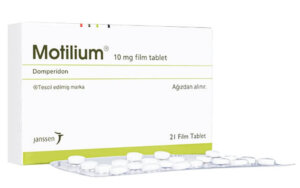The thyroid gland controls all the metabolic processes in the body through the hormones it produces. Thyroid disease occurs when either the thyroid gland is either underactive or overactive. Diagnosing and treating Thyroid disease is relatively simple, giving the sufferer of Thyroid disease the opportunity to live a healthy and active life with little side effects. After starting treatment with prescription medication it is essential to go for regular check up to make sure the situation has become stable.
Hyperthyroidism (overactive thyroid gland)
Your thyroid, a butterfly shaped gland, is located at the base of your neck and, even though it’s only small, it plays an extremely important role in your body. The hormones that the thyroid gland produces control how your body uses carbohydrates and fats, influences your heart rate and controls your body temperature, and also regulates the production of protein.
Hyperthyroidism is when the thyroid gland produces too much of the hormone thyroxine. Your body’s metabolism is directly affected causing a variety of unwanted symptoms. It can be caused by Grave’s disease, hyper functioning thyroid nodules or thyroiditis. Common symptoms include:
– Weight loss even when your diet has remained the same. This is because your body’s metabolism has accelerated too much.
– Sweating
– Rapid heartbeat
– Nervousness or anxiety
– Enlarged thyroid gland
– Fatigue
– Fine hair
– Difficulty sleeping
When treated properly, hyperthyroidism can be controlled. The best treatment for you will depend on many factors such as age, physical condition and the underlying cause for your hyperthyroidism.
Methimazole is a drug which is used to treat an overactive thyroid gland. It works by inhibiting the production of the thyroid hormone. Symptoms generally improve between six to 12 weeks after beginning medication. Most people take anti-thyroid medications for a year or longer, and this can often clear up the problem permanently. Yet some people may experience a relapse.
Hypothyroidism (underactive thyroid gland)
Hypothyroidism is when your thyroid gland doesn’t produce enough thyroid hormone. This is most commonly caused by the autoimmune disorder, Hashimoto’s thyroiditis. Other causes include radiation therapy to the neck, radioactive iodine treatment (used to treat an overactive thyroid), certain medications and too little iodine in your diet.
As with hyperthyroidism, symptoms can often be very similar to those caused by other conditions. Symptoms include:
– Slow heart rate
– Fatigue
– Changes in menstrual pattern
– Depression
– Hair loss
– Dry skin
– Swelling of thyroid gland
– Unexplained weight gain
– Hoarse voice
– Constipation
Synthroid is a drug which uses a man-made thyroid hormone which is meant to replace the hormone normally produced in the thyroid gland. It is also used to treat an enlarged thyroid gland. People with hypothyroidism generally need treatment for life. At the beginning, your doctor will regularly monitor your TSH levels to ensure you’re getting the right dose. He or she will work together with you to get the right dose. Everyone is different and will need a slightly different dosage. Over time your needs might change too, so it’s always important to consult with your doctor any new symptoms you are experiencing.
Secondary Hyperparathyroidism (HPT)
Secondary Hyperparathyroidism (HPT) occurs when your parathyroid glands produce too much of the parathyroid hormone in response to low blood calcium levels (hypocalcemia). This condition generally happens to patients on dialysis with chronic kidney failure. Patients with HPT may not experience symptoms, but some will have itchy skin, weak muscles or bone pain.
The drug Sensipar works with your parathyroid gland, helping it to release less PTH hormone. When this happens, less calcium and phosphorus are released from your bones.
Those suffering from any type of thyroid disease will experience a variety of symptoms which are very uncomfortable and affect daily life. Thyroid disease that isn’t treated can also be very serious. This is why it’s important to see a doctor if you think you might have any of the above conditions. Symptoms vary in everyone and so you may only have some of the symptoms listed. With appropriate diagnosis and treatment, you can resume living a full and healthy life.

Five common misbeliefs about COVID-19 and vaccines
Do people let false claims about health issues get in their way? It is quite disturbing to learn that reliable
Read More »















